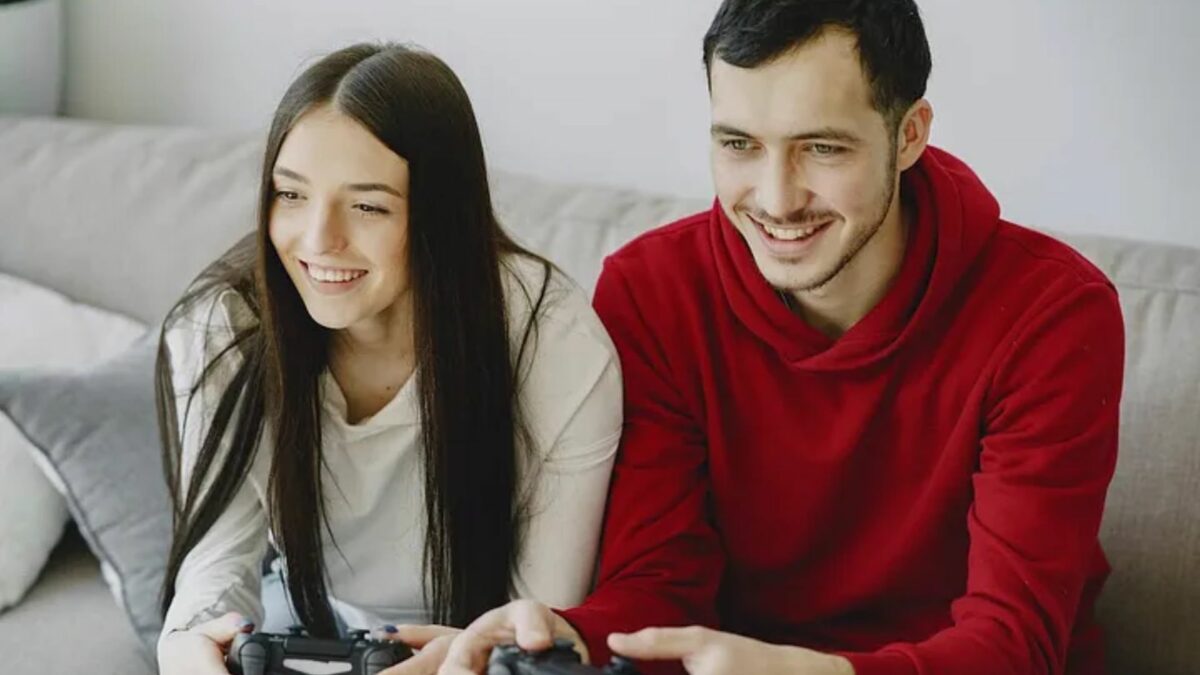Navigating the world of relationships isn’t always a walk in the park. You’ve probably asked yourself, “How can I be a better girlfriend?” Well, you’re in the right place. This article aims to shed light on the key traits and habits that can help you become the girlfriend your partner cherishes.
Relationships require effort, understanding, and a dash of patience. But don’t worry, it’s not as daunting as it sounds. With the right guidance, you’ll find yourself growing not just as a partner, but as an individual too. So, let’s dive in and explore how you can enhance your relationship and be the best girlfriend you can be.
Understanding Relationships

In this journey of unraveling the art of being a good girlfriend, it’s crucial to first comprehend the dynamics of relationships. The variables in relationships multiply with emotional intelligence and ceaseless communication.
Developing Emotional Intelligence
Your emotional intelligence, or EQ, dictates the depth and quality of your interactions in your relationship. It’s the ability to perceive, understand, manage, and use emotions in positive ways.
- Recognize emotions: Read the emotions of yourself and your partner, making them feel understood.
- Harness emotions: Use your emotions to facilitate thinking, decision-making, and problem-solving.
- Navigate emotions: Understand emotional meanings, enabling you to recognize what’s truly important to your partner.
Take these points into practice, and you’ll find yourself being a better girlfriend not only by your standards but by your partner’s as well.
Communicating Effectively
Clear and empathetic communication forms the cornerstone of any relationship. In communicating effectively:
- Listen Actively: Let your partner know you’re invested in their thoughts and feelings.
- Express Clearly: Make your intentions and thoughts known to avoid misunderstandings.
- Address Issues: Speak up about any issues or discomforts—an essential part of maturity in a relationship.
Mastering these nuances of emotional intelligence and communication paves the way for understanding relationships better. After all, being a good girlfriend isn’t about perfection, it’s about improvement and growth towards maintaining a healthy bond.
Supporting Your Partner

The cornerstone of any healthy relationship entails reciprocal support. As a good girlfriend, it’s imperative to embrace both the highs and lows of your partner’s life journey.
Being There in Tough Times
Profound connections arise from weathering storms together. When tough times hit your partner, lend an empathetic ear. Providing emotional reinforcement during hardship underpins a strong bond. In practice, this can be as simple as offering a listening ear when your partner faces challenges, providing words of encouragement during setbacks, or simply showing patience and understanding. The principle here: presence trumps unsolicited advice.
A statistic by the American Psychological Association found that emotional support significantly facilitates stress recovery. It’s crucial to ensure that you do your part by being a pillar of support for your partner during hardships.
Celebrating Success Together
Conversely, applaud your partner’s accomplishments, no matter how trivial. This practice elevates their feelings of worth and strengthens your bond. A research study found that recognition energizes and motivates individuals, significantly enhancing their performance and satisfaction levels. Your excitement in your partner’s triumphs not only makes them feel valued, but it also showcases a mutual respect for their journey and an acknowledgment of their efforts.
Maintaining Your Identity

Navigating through the complex maze of relationships demands a balance of unity and individuality. Maintaining your identity is crucial, as it helps you to keep a sense of self while still being an essential part of a duo. This section focuses on ways to maintain your identity, primarily through pursuing personal goals and ensuring mutual respect.
Pursuing Personal Goals
Your aspirations matter. They define your purpose, fuel your passion, and contribute to your growth. Hence, maintaining your goals and aspirations is paramount. Dabble in pursuits you love, expand your horizons by learning new skills, and strive for personal achievements. For example, if you’re passionate about painting, dedicate time to hone your skill. By pursuing your passions, you not only retain your sense of self but also foster personal happiness which, in turn, can enrich your relationship.
Ensuring Mutual Respect
In a relationship, mutual respect signifies acknowledging differences and valuing your partner’s individuality— their choices, feelings and perspectives included. Weaved into the fabric of respect, acceptance plays its part. Embrace each other’s unique traits, quirieties, and viewpoints without trying to morph your partner into your ideal version. Respecting your partner’s desires and boundaries also means allowing space for personal growth. For instance, if your partner’s newfound interest in a book club intrigues you, feel free to join them; however, it’s essential to give them the option of solo outing, if they desire so. Maintaining mutual respect fosters a healthy environment that promotes an individual’s growth, while nurturing the couple’s bond.
Read More : Is-my-husband-stupid
Balancing Togetherness and Independence

Striking the right balance between spending time together and maintaining your independence is key in a relationship. In this section, let’s explore two areas where you can exercise this balance – spending quality time together and giving space when needed.
Spending Quality Time Together
Quality time serves as the bedrock of any thriving relationship. During these moments together, relationships bloom. Encounter, exchange, and empathy flow freely. Memories get created, shared, and cherished. Additionally, it’s a golden opportunity to understand your significant other in a deeper, more meaningful manner. Here’s how you can optimize your time together:
- Engage in activities that both of you enjoy: Example could range from quiet dinners to adventurous treks.
- Learn something new together: Try cooking classes, learn a new language, or even delve into photography.
- Communicate effectively: Open and honest communication fosters understanding and clarity in a relationship.
Giving Space When Needed
Respect for individual space represents another crucial aspect of a sound relationship. Both of you are unique individuals with distinctive interests, passions, and friendships outside the relationship. Here’s how you can provide each other with necessary space:
- Recognize when space is needed: Acknowledge the signs when your partner starts to feel overwhelmed.
- Encourage independence: Support each other in pursuing individual interests and hobbies.
- Maintain healthy boundaries: Create a set of guidelines that respect each other’s space.
Remember, a healthy relationship nurtures both the bond between you and your partner and the independence of each individual. It’s a delicate balancing act, but it’s one that can lead to a satisfying and lasting partnership.
Read More : 8-tips-for-improving-relationship-communication
Conclusion
So you’ve got the lowdown on being a good girlfriend. It’s about effort, understanding, and patience. It’s about mastering the art of communication and emotional intelligence. It’s about supporting your partner in their highs and lows, while also maintaining your individuality. Remember, your personal growth and happiness are as important as the relationship itself. It’s a delicate balance between togetherness and independence, and it’s your job to strike it right. Spend quality time together, but also give each other space. Respect personal interests and establish healthy boundaries. Nurturing this bond will lead to a satisfying and lasting partnership. Now, it’s time to put these insights into action. Be the best girlfriend you can be, and watch your relationship flourish.
Frequently Asked Questions
What is the main focus of this article?
The article primarily focuses on how to be a better girlfriend, addressing the challenges, qualities and skills essential in building a strong relationship.
What are the significant traits identified in the article?
The key traits highlighted in the article are understanding, effort, patience, emotional intelligence (EQ), effective communication, and maintaining personal identity.
How important is personal identity in a relationship according to the article?
The article underscores the importance of maintaining one’s personal identity in a relationship, as it contributes to personal growth, happiness, and positively affects the overall relationship.
How can one balance togetherness and independence in a relationship?
Balancing togetherness and independence in a relationship can be achieved by spending quality time together through shared activities and learning experiences, while also respecting individuality, supporting personal interests, and establishing healthy boundaries.
Why is it essential to recognize individuality in a relationship?
Recognizing individuality in a relationship is crucial as it acknowledges personal interests and establishes healthy boundaries, which in turn nurtures both the bond between partners and individual independence, fostering a satisfying and enduring partnership.

